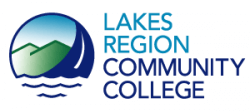Principles of Chemistry
This algebra-based course with integrated laboratory component provides a college-level introduction to the core concepts of chemistry for students new to, or reviewing, the subject. Beginning with the basic concepts of measurement, energy, classification of substances, and chemical terminology, it examines how the history of atomic models leads to the development of the wave mechanics […]
Chemistry I
This course provides an introduction to chemistry on a qualitative level. The major topics covered include measurement, energy, chemical terminology, classification of matter, atomic models, the Periodic Table, sources and types of chemical bonds, chemical reactions, acids and bases, phases of matter and the properties of common gases. This course is not recommended for students […]
Introduction to Genetics
This course offers the study of human genetics and its application in various disciplines. It is designed to help students gain knowledge of this subject area and to be able to apply this knowledge in cooperative work with medical, research, criminal justice and many other science-related disciplines. Major topics include introduction and history of genetics, […]
Microbiology
This course offers modern principles and concepts of microbiology. The morphology, physiology, genetics and classification of bacteria, viruses and other organisms are studied. Their relationships to sanitation and infectious diseases are emphasized. The course, nature, incidence and control of communicable diseases, especially those of man, are included. This course includes a laboratory component. (Prerequisite: BIOL145L […]
Introduction to Plant Biology
This course is an introduction to the structure, function and diversity of plants. Covered topics include plant structure and function, growth and development, reproduction and genetics, and ecology, identification, classification and naming of plants. Laboratory activities are designed to enhance selected topics.
Ecology
Students will study the general ecological principles regarding the relationships between organisms and their physical and biological environments in both lecture and the laboratory. These principles will be used to interpret patterns in the distribution, abundance, and characteristics of organisms over space and time. Students will study the differences among the various segments of ecology […]
General Biology II
This course covers the biology of organisms, including the four areas of kingdoms, behavior, evolution and ecology. Laboratory exercises are designed to reinforce theoretical concepts presented in the lecture portion of the course. (Prerequisite: BIOL148L with a C or better)
General Biology I
This college-level course covers the principles of cell biology, including cellular physiology, cellular metabolism, molecular biology, biochemistry and genetics. Laboratory exercises are designed to reinforce theoretical concepts presented in the lecture portion of the course.
Music and the Brain
This course is an introduction to the structure and function of the special sense of hearing and its relationship to music, including the neurological functions involved in processing sounds and music. We will also examine the relationship between music and the cognitive functions of memory, movement, emotion and identity. Case studies involving music and its […]
Anatomy & Physiology II
This course offers a sequential study of the structure and function of the human body. The course includes the anatomy and physiology of the blood and lymphatic systems, respiratory system, circulatory system, excretory system, fluid and electrolyte balance and reproductive system. Laboratory work parallels lecture topics, and consists of selected exercises in the study of […]
Anatomy & Physiology I
This course offers an introduction to the structure and function of the human body. The course includes a review of the chemical and biological basis of living organisms and the anatomy and physiology of the integumentary, musculoskeletal and nervous systems. Integrated lab experience is provided using anatomical models and dissection of selected specimens, as well […]
Human Biology with Lab
This course is a study of the human anatomical structure and physiological systems. It is designed to provide the student with knowledge and perspectives necessary to work cooperatively with professionals in medicine and other human service disciplines. Background topics include chemistry for human biology, cell structure and function, and human organization. Major topics include the […]

